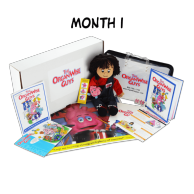
Buying Organic Food for Beginners
To buy organic food or to not buy organic food? That seems to be the hot question everywhere these days! No matter what side of the argument you side with, knowing what organic vs. non organic is and how you can slowly introduce these foods to your grocery list can be valuable for your health and your wallet!
What are Organic Foods?
Organic foods are foods that are produced by farming methods that promote biodiversity, ecological balance, and avoid using extra chemicals or additives in the soil. Many foods have become “non-organic” over time because using chemicals, like pesticides, help farmers to grow larger crops for a cheaper price. In many cases, the nutritional profile of non-organic vs. organic fruits and vegetables are the same. The important distinction, and why many people pick organic, is that these foods are friendlier on the environment and do not have extra chemicals inside of them that may cause different sicknesses.
How to Buy Organic Food
Now that you know the difference between organic and non-organic foods, are you interested in starting to buy organic? If so, the great news is that many supermarkets have begun to sell a variety of organic foods at an affordable price. If you live in the south, one of our favorite places to shop affordably for organic foods is Earth Fare. This supermarket bans certain chemicals and additives in all their foods so you can feel good about everything you purchase. It is also extremely affordable and has lots of weekly specials.
Shopping organic can also be something that you slowly integrate into your weekly supermarket trips. If you are just getting started or want to get started, here is what we recommend doing:
- Shop Organic for “The Dirty Dozen” – The Dirty Dozen lists foods that are most commonly found to have pesticide residue. Think fruits and vegetables that you eat the skin of (grapes, apples, peaches, etc.) or that grow low to the ground or underground (spinach, sweet potatoes, lettuce, etc.). It makes sense that these foods have more chemicals than others. Since the foods are sprayed with pesticides, eating the skin, even if it’s thoroughly cleaned, can be harmful. Also, the foods that grow close to the ground collect all the drops of chemicals that trickle down into the ground.
- Buy Organic Tomatoes – One of the biggest taste differences in organic vs. non-organic is tomatoes! Have you ever eaten a tomato from your own garden in late summer? They are sweet and delicious and taste much different than the large bitter ones sold in supermarkets. If you are new to organics and want to taste the difference, tomatoes are a great place to start. Make a simple Caprese salad with an organic, vine-ripened tomato.
- Check the Expiration Date – Organic foods often expire much faster than non-organic ones! Take extra time at the supermarket to check the expiration date on your organic foods. Eggs will typically be good for a month, cheese can be anywhere from a week to a month, bread will be about a week, and vegetables are usually good for a few days before they go bad.
- Cook Using Simple Methods – At first, organic shopping can take a little more time, so balance the extra time in the supermarket with simple, easy to make recipes. Check out our recipe vault of Slow Cooker Recipes. Each one only requires about 15 minutes of prep time and your house will smell amazing while they cook!
More Information on Organic Foods
It’s great to try to eat organic if you haven’t started to already. Consider visiting our Blog for healthy recipes to inspire you to cook with organic foods! To help encourage children in your life to understand the importance of eating foods, check our Online Shop for lots of fun products featuring The OrganWise Guys!

